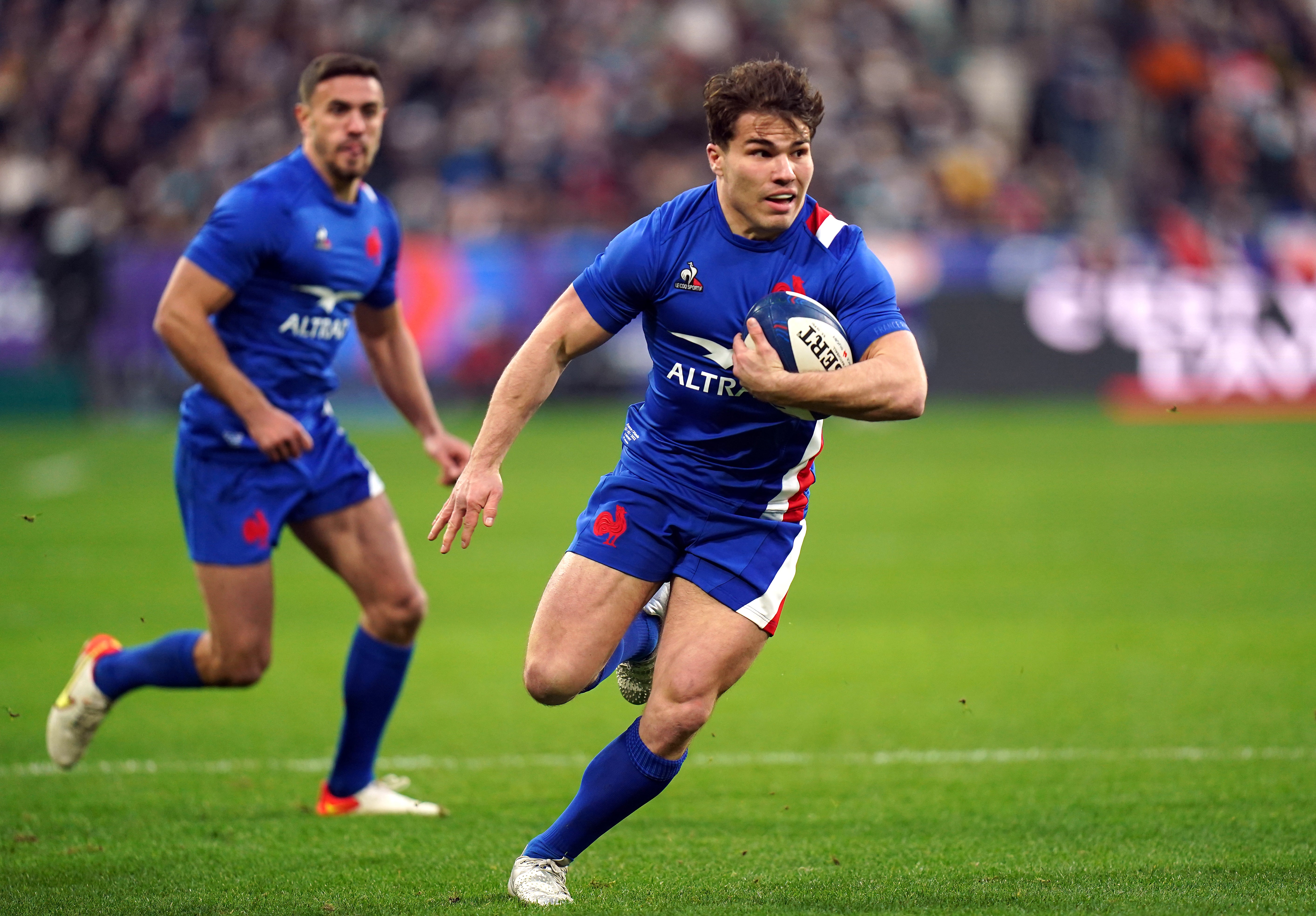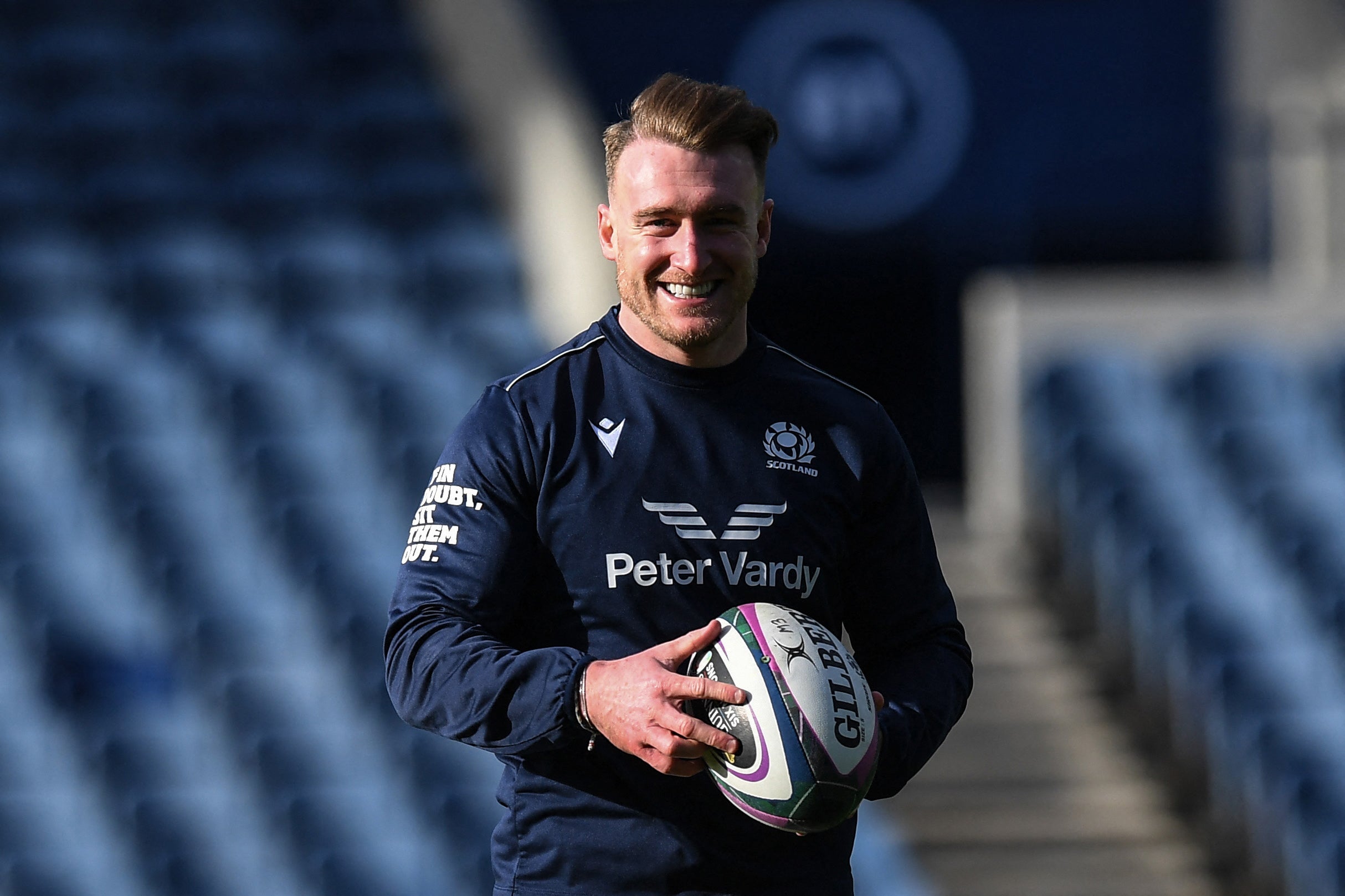‘New England’ face ultimate test of improvement against Ireland
Defeat a year ago against Andy Farrell’s side saw Eddie Jones wield the axe on his squad

Your support helps us to tell the story
From reproductive rights to climate change to Big Tech, The Independent is on the ground when the story is developing. Whether it's investigating the financials of Elon Musk's pro-Trump PAC or producing our latest documentary, 'The A Word', which shines a light on the American women fighting for reproductive rights, we know how important it is to parse out the facts from the messaging.
At such a critical moment in US history, we need reporters on the ground. Your donation allows us to keep sending journalists to speak to both sides of the story.
The Independent is trusted by Americans across the entire political spectrum. And unlike many other quality news outlets, we choose not to lock Americans out of our reporting and analysis with paywalls. We believe quality journalism should be available to everyone, paid for by those who can afford it.
Your support makes all the difference.It was after defeat to Ireland 12 months ago that Eddie Jones began to draw his line in the sand. England had been comprehensively outclassed by Andy Farrell’s side, condemning them to a fifth-placed Six Nations finish. The official RFU review was still weeks away but such was the manner of England’s defeat that, over breakfast at a Dublin hotel the next morning, Jones warned that changes were to come.
“I think we all got a pretty strong inkling first thing in the morning when he told us that [there would be a reset] in a meeting,” Charlie Ewels, who starts again in the second row, revealed this week. “He literally said: ‘That’s not good enough - you have got to make a decision.’
“’This is where this team is going, it is up to me to decide who is here and it is up to you to decide to be here.’ He didn’t make a secret of it. His challenge to the players was we need to improve, the group needs to improve and therefore the individuals need to improve. ‘So go away and make me pick you’.”
Jones has delivered on his axe sharpening. Just four of the starting side at the Aviva Stadium remain a year on; not a single back in the English starting line-up at Twickenham on Saturday started that game. The question, then, is how far the “new England” have come – and how far they have to go.
These next two weeks will be a proving ground. The hosts have won six games at Twickenham since that new beginning but are yet to face an opposition of Ireland’s ability and togetherness: the autumn win over South Africa came against a Springboks side wearied by months of rugby, largely on the road.
Jones has urged patience with his young side but lose to Ireland and, with a trip to Paris on the final Saturday, England will again be staring down a bottom-half finish. Conversely, a win over an excellent Ireland would be a sign of tangible growth and ensure the chances of an unlikely Six Nations triumph remain intact.
“If these projects were a linear progression, then everyone would do it and it would be easy, the England head coach cautioned. “It’s not. There are ups and downs.
“Obviously we want to win the next game. That is our priority, but even [if we lose], we are still making good progress, we are still developing as a team and we will learn.”
Cohesion has been the word of the week as England’s fluid structures continue to form, contrasting with an Irish side that has come together so brilliantly in the last year around their Leinster core. The midfield of Marcus Smith, Henry Slade and Joe Marchant impressed against South Africa but Andy Farrell’s side will put stress and strain on Anthony Seibold’s quietly impressive defence, though a more reactive game may suit England.
Kyle Sinckler trained on Thursday after an injury scare and starts, while Alex Dombrandt’s time in isolation forces a switch of number eight roles, with Sam Simmonds starting and the Harlequin on the bench. Joe Launchbury returns for the first time in a long while to shore up England’s second row depth from the bench; Iain Henderson will perform similar duties for Ireland.
Jones has lavished praise on the visitors, “the most cohesive team in the world”, but counterpart Farrell has stayed out of things, questioning on Thursday what, quite, the point was to the posturing - though admitting he “admires the character and charisma” of his former Saracens coach.
The rather farcical nature of the Italy game means that Ireland have not really had to work up to anything like full intensity since defeat to France four weeks ago. Peter O’Mahony starts at six - a fine lineout operator, and just the sort of character for the broken glass of the bar-room brawl that some have tipped – and back, of course, is Johnny Sexton in the week that he officially confirmed his intention to see things through to the World Cup.
“It’s part of the next step for us as a team, making sure we go to places like this and be at our best ,” suggested Farrell of a fixture with which he is rather familiar. “We know that England are going to come at us. We know that they’re going to cause us problems but we’re confident in our own ability. We’re a good side, we need to make sure that we’re able to be at our best on the day on what is going to be a fantastic occasion.”

Wales vs France
One would anticipate that things will be rather tighter in Cardiff on Friday night than the narrative around the two sides would suggest, but France are firm favourites. Fabien Galthie will breathe a sigh of relief that a Covid outbreak in the French camp has not, at the time of writing, extended beyond Romain Taofifenua and Damian Penaud, and that Antoine Dupont’s bang to the bicep did not more permanently dent the masterly scrum-half.
Wales, meanwhile, have insisted this week that Tomas Francis has been cleared by their medical experts but his place in the starting side does not necessarily sit well given how obvious symptoms of concussion were missed against England two weeks ago.
Brain injuries are, rightly, never far from prominence in rugby now but these have been two potentially seismic weeks for concussion in sport after the influential Dr Paul McCrory - co-chair of the Concussion in Sport Group (CISG) – tendered his resignation after allegations of plagiarism. What the consequences of Dr McRory’s misdeeds will be are not yet clear, but such is his prominence, it is worth monitoring.

Italy vs Scotland
Gregor Townsend will be desperate to arrest the downward trend in the level of Scotland’s performances, and there is little room for experimentation against Italy. Hamish Watson’s positive Covid test meant Townsend had to wait an extra round before unleashing dual opensides, and the coalescing of Watson and Darge should be fascinating against a strong Italy back-row, led by action-man Michele Lamaro.
The circumstances of the Ireland game made Italy’s attacking performance hard to judge, but Kieran Crowley will be looking for far more efficiency from his side when line breaks are made to add to the single try that they have scored this Six Nations. The bedding in of Italy’s own coltish partnership – the two playmaker axis of Paolo Garbisi (21) and Leonardo Marin (20) – will thus be key.
Join our commenting forum
Join thought-provoking conversations, follow other Independent readers and see their replies
Comments